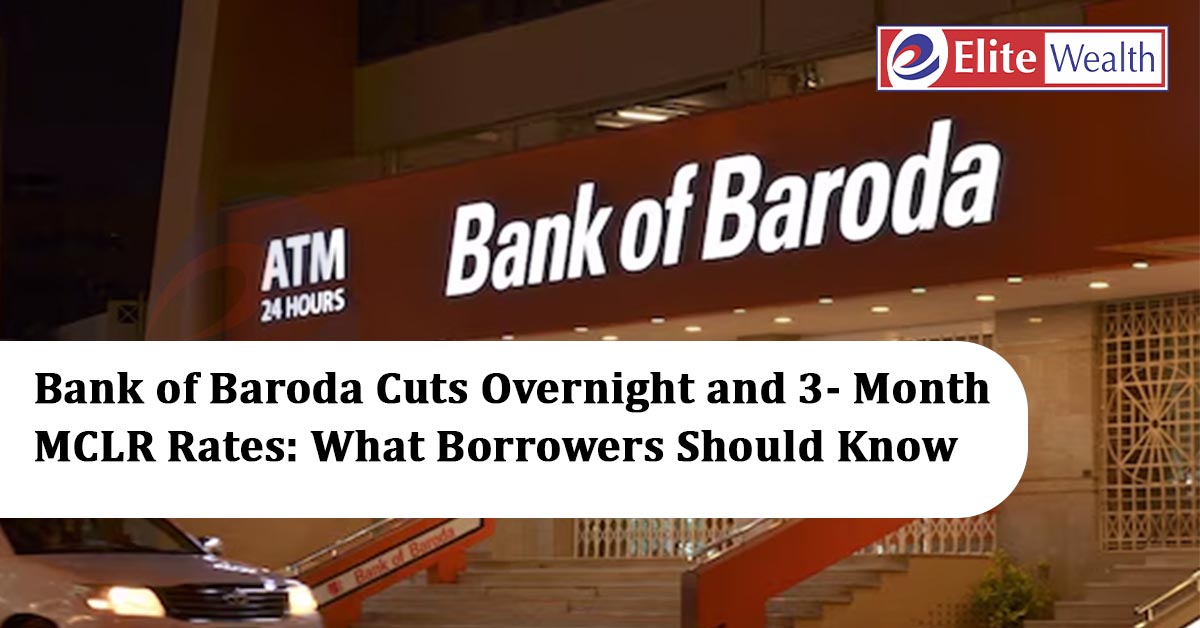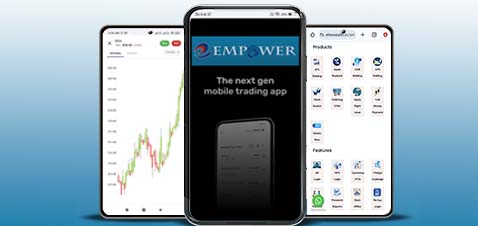
Mumbai, September 2025: State-owned lender Bank of Baroda (BoB) has announced a reduction in select tenures of its Marginal Cost of Funds-based Lending Rate (MCLR), effective September 12, 2025. The move will make short-term loans cheaper for borrowers, though the rates for longer tenures such as home and auto loans remain unchanged.
Key MCLR Revisions
- Overnight MCLR: Reduced by 10 basis points to 7.85%.
- 3-Month MCLR: Reduced by 15 basis points to 8.20%.
- 1-Month MCLR: Unchanged at 7.95%.
- 6-Month MCLR: Unchanged at 8.65%.
- 1-Year MCLR: Unchanged at 8.80% (a crucial benchmark for retail loans like home and auto).
This adjustment is part of the bank’s periodic review of its cost of funds and lending conditions.
What is MCLR?
The Marginal Cost of Funds-based Lending Rate (MCLR) is the minimum interest rate that banks can charge on loans, except in cases permitted by the Reserve Bank of India (RBI). Introduced in April 2016, MCLR replaced the earlier base rate system to make lending rate adjustments more transparent and closely linked to monetary policy changes.
How it is calculated:
MCLR is determined by several factors:
- Marginal cost of funds: The cost of fresh deposits raised by the bank.
- Negative carry on CRR: The cost of maintaining mandatory reserves.
- Operating costs: Bank’s administrative and service costs.
- Tenor premium: Compensation for risks associated with longer loan durations.
As these components change, banks revise their MCLR to reflect updated borrowing costs.
Impact on Borrowers
- Short-term loans: Borrowers with overnight or 3-month MCLR-linked loans (common in working capital finance for businesses) will benefit immediately from lower interest costs.
- Home and auto loans: No impact for now, since the 1-year MCLR — the benchmark for most retail floating-rate loans — remains unchanged at 8.80%.
- Future outlook: If funding costs decline further, there could be downward revisions in the 1-year MCLR, easing EMIs for households.
Why it Matters
MCLR revisions are an important channel for monetary policy transmission. When banks lower MCLR, it ensures quicker pass-through of RBI’s repo rate changes to the real economy. For borrowers, this means potentially cheaper loans, while for banks, it reflects cost and liquidity adjustments in response to market conditions.
Summary
Bank of Baroda’s latest MCLR cut reduces short-term lending costs, with the overnight rate now at 7.85% and the 3-month rate at 8.20%. While home and auto loan borrowers will not see immediate relief, the move signals a step toward easing credit conditions for businesses and retail customers, depending on how deposit costs and RBI policies evolve in the coming months.
Disclaimer:
This article is intended solely for educational and informational purposes. The securities or companies mentioned are provided as examples and should not be considered as recommendations. Nothing contained herein constitutes personal financial advice or investment recommendations. Readers are advised to conduct their own research and consult a qualified financial advisor before making any investment decisions.
Investments in securities markets are subject to market risks. Please read all related documents carefully before investing.


